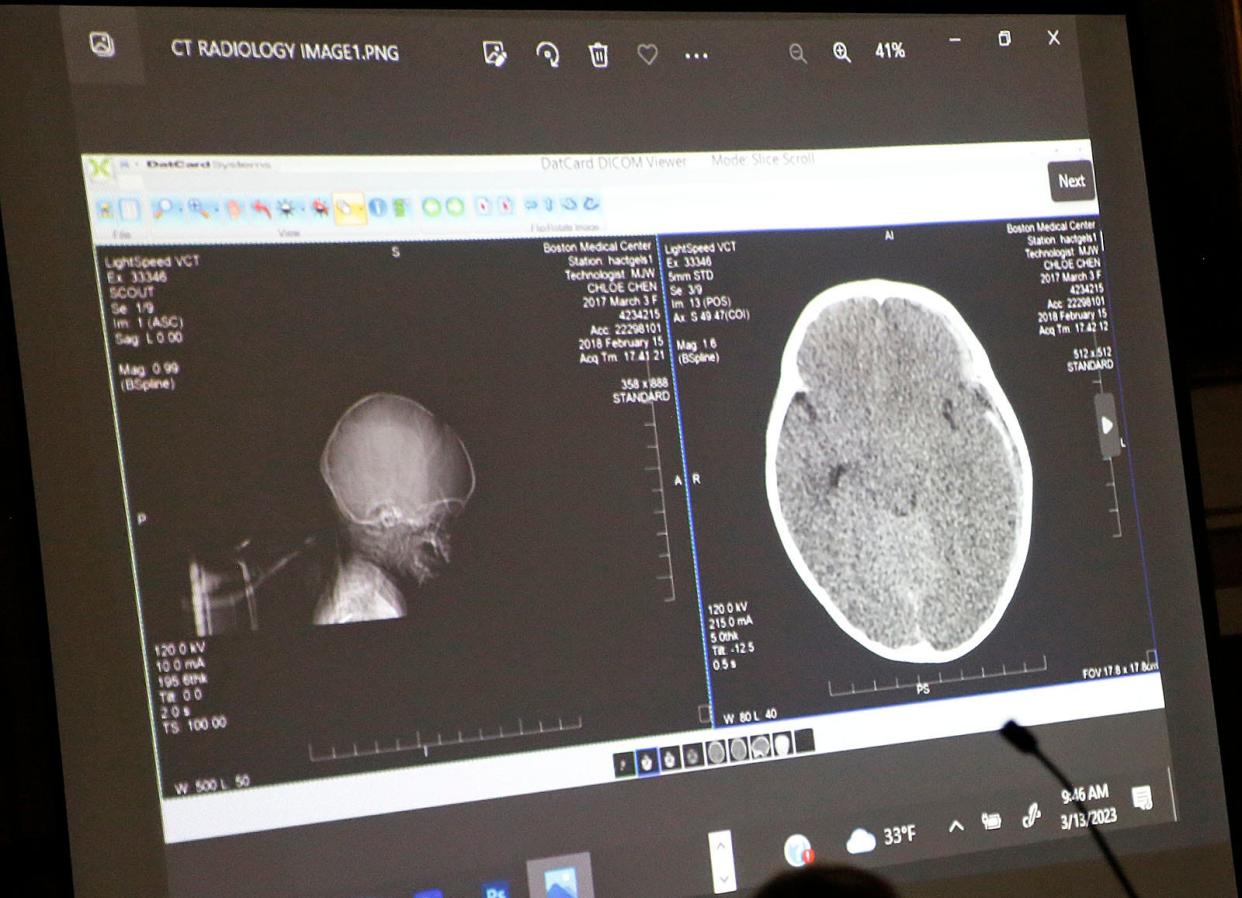Round Rock trauma center offers tips for preventing brain injuries

The spring season is officially upon Central Texas, a time when many people venture outdoors for recreational activities and take to the road for weekend adventures. However, as outdoor activity increases, so does the likelihood of severe injuries.
According to the Centers for Disease Control and Prevention, approximately 223,125 people were hospitalized for traumatic brain injuries in 2019, and nearly 64,000 died from traumatic brain injuries in 2020. To raise awareness of these life-changing injuries and how to prevent them, the medical community recognizes March as Brain Injury Awareness Month.
Brain injuries can be caused by stroke, oxygen deprivation from any cause, including a near-drowning, and substance abuse, as well as trauma from motor vehicle crashes, sporting mishaps and assaults.
The lasting effects of brain injuries are not always obvious and, if left untreated, can cause permanent damage. Less obvious symptoms can include brain fog, trouble with concentration or memory retention, unusual emotional responses, balance difficulties and persistent ringing in the ears. More obvious outward physical symptoms might include persistent weakness on one side of the body and difficulty speaking.

According to the CDC, approximately 1.5 million Americans sustain traumatic brain injuries, often leading to lifelong physical challenges and difficulty performing everyday tasks. The Level II Trauma Center at St. David’s Round Rock Medical Center recommends the following tips for preventing brain injuries.
Prevent falls
According to the CDC, falls cause nearly half of all traumatic brain injury hospitalizations. Most falls occur when someone uses a ladder on loose, uneven ground or there isn’t another adult present to hold the ladder. Minimize your risk of injury by using a sturdy ladder on solid, even ground with another adult holding the ladder. Children and older adults should never climb a ladder onto a roof. Older adults are more likely to fall while on the ground. This can usually be prevented by removing rugs and clutter, using safe footwear and walking with an assistive device, such as a cane.
Stay safe behind the wheel
Motor vehicle crashes are another common cause of traumatic brain injury. According to the Texas Department of Transportation, approximately one in five crashes on Texas roads were caused by a distracted driver, causing 431 deaths and serious injuries to almost 3,000 people. To prevent a motor vehicle crash, remove distractions such as cell phones. It’s also vital to always wear a seat belt no matter where you are seated within the vehicle. In 2020, the National Highway Traffic Safety Administration reported that of the 23,824 passengers in a vehicle killed, 51% were not wearing seat belts, increasing 4% from the year prior.
Gear up for recreational activities
Brain injuries can often be prevented by wearing the appropriate safety gear for any sport or recreational activity. Children and adults should always wear a helmet when riding bicycles, scooters or skateboards.
Remain vigilant near bodies of water
If someone is submerged under water, their lungs cannot transfer oxygen to the blood. Oxygen deprivation during a drowning or near-drowning can cause permanent brain damage. Young children are most likely to experience drowning and should remain no more than an arm’s length away from a parent or caregiver while in or around water.
Learn CPR
Adults and teens should learn CPR and first aid in the event of an emergency. If you find someone unconscious, check for a pulse and any response. If they have no verbal or physical response, initiate CPR immediately and call 911.
The brain is vulnerable immediately after an injury, making it critical to rest and avoid additional trauma. Fortunately, recovery from brain injuries can be drastically improved with tailored rehabilitation. This is especially important when treating severe injuries from stroke, oxygen deprivation and trauma, as well as concussions that can range from mild to severe.
St. David’s Round Rock Medical Center’s Outpatient Concussion Clinic offers tailored rehab specific to each patient’s symptoms and needs. Orthopedic and vestibular (inner ear) physical therapy can help improve patients’ balance, vision and memory.
During Brain Injury Awareness month and every month, take note of the ways you can keep you and your family safe from brain injuries. If an injury does occur, seek immediate medical attention, rest the brain from unnecessary stimuli and engage in targeted rehabilitation.
Kristen Hullum, MSN, RN, is the trauma injury prevention coordinator at the Level II Trauma Center at St. David’s Round Rock Medical Center.
This article originally appeared on Austin American-Statesman: St. David’s Round Rock Medical Center offers tips for preventing brain injuries

